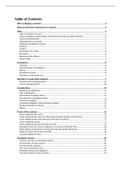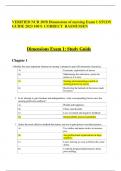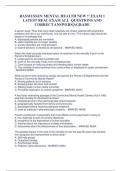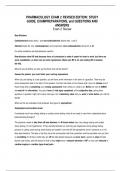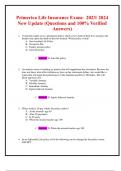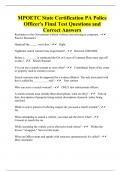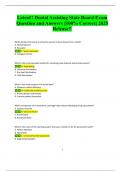Summary
Full Contract Law Summary - how to make a contract, whether it is formed, exceptions etc.
- Module
- Contract
- Institution
- University Of Law (ULaw)
FULL contract revision document. Includes definition, cases, explanation for: offer, acceptance, intention to create legal relations, consideration, terms of the contract, exemption clauses, classification of terms (condition or warranty), damages, discharge by frustration, terms or misrepresenta...
[Show more]
